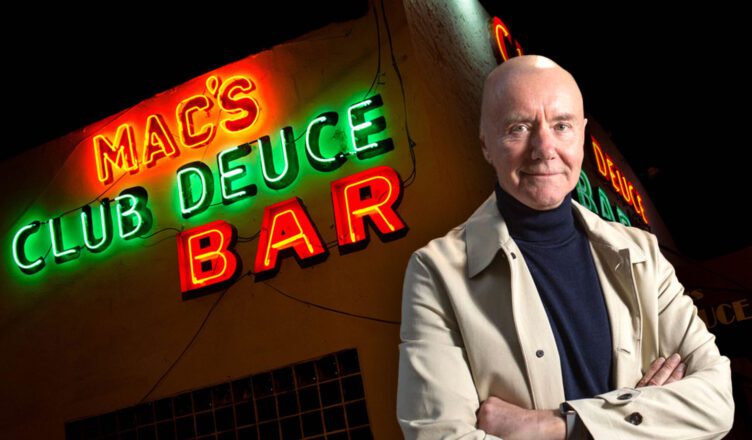Mac’s Club Deuce only accepts cash in exchange for beers, rum, vodka, and whiskey. Its decadent atmosphere is scratched by red and green neon brushstrokes, while in the background, near a pale-cloth pool table, songs by The Smiths, David Bowie, The Cure, or The Clash play.
It is the oldest bar in Miami, a neighborhood bar, unpretentious, not suited for Instagram socialites, nestled in the heart of South Beach since 1926, and until recently, Mac Klein, the 101-year-old owner, was the one filling the glasses during Happy Hour from eight in the morning to five in the afternoon. Scenes from Miami Vice were filmed at the Deuce, and it has served as a haunt for Iggy Pop, Anthony Bourdain, who considered it one of his favorite places in the world, and Irvine Welsh, author of the best-selling novel Trainspotting, who got inspired here for triggering one of his most interesting books.
Accustomed to dividing his residence between the slate-colored skies of his native Scotland and the winds of Chicago, a few years ago Welsh was seduced by the palm trees of Miami Beach and established one of his trenches there. Irvine Welsh’s Miami is not the Miami of rooftops where Cosmopolitan glasses are raised, but a more underground one. And that is precisely what motivates Irvine Welsh to create fictions like he did in his novels Crime and The Sex Lives of Siamese Twins, a story that ridicules the cult of gyms, diets, and shaved bodies that rule South Beach.
In Crime (2008), Irvine Welsh introduces us to Ray Lennox,
a cocaine-addicted Scottish police officer who has just closed a pedophilia case that has mentally affected him, and his boss gives him a few days off to distance himself. That’s how he ends up in Miami Beach with his girlfriend Trudi. But after hanging out with some old friends, Lennox succumbs to the anxiety of the night and leaves his hotel room on Collins Avenue without Trudi.
His destination is the Deuce, where the false promise of neon hooks him up with Starry and Robyn, two women with whom he snorts lines of coke and then takes a bus to Robyn’s house in Little Havana. There the party continues with snorting, music, and sexual encounters until some strange friends of Robyn’s interrupt, and Lennox finds one of them sexually abusing Tianna, Robyn’s ten-year-old daughter. This marks the end of Lennox’s vacation, as after a fight with the men and Robyn’s escape, he takes charge of protecting Tianna, spiraling through the seediest parts of Miami and Fort Lauderdale, as his police instincts uncover that Robyn’s friends are part of a pedophile network.
What’s interesting about Irvine Welsh’s perspective is that it’s neither Latin American nor Anglo, and thus his view may be the most objective to expose and narrate Miami’s miseries. Crime reveals a marginal city, leaving us with what is likely a great novel of contemporary Miami, or if not, certainly what will become a classic of Miami literature from this era.


